
Establishing a ‘dual operating system’ is effective in balancing financial risk management, innovation – Deloitte’s Prakash Arikrishnan
Deloitte’s Prakash Arikrishnan shared his insights on balancing financial risk and innovation, amongst other key topics.
In today's rapidly evolving business landscape, the delicate balance between financial risk management and innovation is crucial for the success of any organisation. This challenge has been a focus of attention for many professionals in the field, including Prakash Arikrishnan, the leader of Treasury, Controllership and Digital Control Advisory at Deloitte Southeast Asia's Risk Advisory practice.
With over 20 years of experience in optimising treasury and finance functions, and enhancing financial risk management, Prakash brings a wealth of insights and expertise to the table.
Prakash's career has been marked by excellence and leadership in the field of financial advisory. Before joining Deloitte, he served as a Director at PwC Malaysia, where he spearheaded the Corporate Treasury Advisory practice and served as a Treasury Subject Matter Expert for PwC offices across the region. His areas of expertise encompass a wide range of financial services, including finance function advisory, financial risk management, and specialised audit services.
In an interview with Asian Business Review, Prakash advocated for the establishment of a "dual operating system" within organisations, with one part dedicated to core business operations whilst the other fosters innovation and explores long-term opportunities. He also discussed several emerging trends that will significantly impact the role of corporate treasury and controllership.
From your experience, how can companies strike a balance between managing financial risks and fostering innovation? Are there any specific strategies that you've come across that have managed to achieve this delicate equilibrium?
Striking a balance between financial risk management and innovation is a critical challenge for businesses today. An effective approach to this involves establishing a 'dual operating system” (source: McKinsey article “The importance of tailoring your operating model for the market”). One part focuses on core business operations for stable revenue and risk management, whilst the other fosters innovation and explores long-term opportunities. Resource allocation should be dynamic, moving funds to where they can generate the most value, whether that be in core operations or innovation projects. Scenario planning can further help companies prepare for a range of outcomes, enabling quick pivots when needed.
Moreover, the role of culture and talent should not be underestimated. A strong organisational culture that values both innovation and financial discipline can act as a catalyst for achieving this balance. Digital capabilities, like data analytics and AI, can further bolster risk assessment and decision-making in real-time.
Companies should also revisit their existing 'Risk Appetite Framework' to align the risk-taking levels across different business units, ensuring that everyone is on the same page when it comes to balancing financial risks and innovation.
A multifaceted approach involving strategic alignment, agile resource allocation, and a strong culture can help organisations maintain a delicate equilibrium between financial risk and innovation.
In the context of the evolving business landscape, what emerging trends do you foresee that could significantly impact the role of corporate treasury and controllership? How should professionals prepare for these changes?
The role of corporate treasury and controllership is undergoing a shift due to evolving business dynamics and emerging trends such as digital transformation, regulatory shifts, geopolitical and economic changes, and the rise of ESG considerations. Professionals in these roles need to proactively adapt to these changes to remain relevant. This involves not just technical upskilling to harness new technologies like AI and blockchain but also embracing agile methodologies for faster, more responsive business solutions and decision-making.
Moreover, these professionals must move towards a more strategic role that aligns closely with broader business objectives, thus becoming a “strategic finance and treasury.” In a world increasingly concerned with governance and sustainability, understanding and integrating ESG metrics are becoming crucial. With the international nature of modern business, a global perspective on financial regulations and risks is more important than ever.
To navigate the future effectively, corporate treasury and controllership functions need to evolve into data-savvy, agile, strategically aligned, and globally aware units. By doing so, Treasury and Finance professionals can better manage emerging risks and capitalise on new opportunities, thus maintaining their value proposition in a rapidly changing business environment.
Diversity and inclusion are increasingly recognised as crucial factors for a company's success. How can a strong commitment to diversity and inclusion translate into better risk management and financial outcomes?
In the context of modern business, diversity and inclusion (D&I) are not just ethical imperatives but also strategic levers that significantly influence risk management and financial performance. There is research that shows that companies with diverse teams are more likely to have above-average financial returns, owing to increased innovation and problem-solving capabilities. Additionally, these companies better align with diverse customer bases, fostering increased sales and loyalty.
From a risk management standpoint, diversity contributes to a richer, more nuanced understanding of potential risks and vulnerabilities. This helps to avert the dangers of 'groupthink,' often enabling the organisation to foresee and navigate challenges more effectively. A strong D&I policy also aids in mitigating regulatory and reputational risks, as many jurisdictions are increasingly factoring diversity metrics into compliance requirements and public perception.
Moreover, an organisation that prioritises D&I is often more attractive to top talent, leading to higher levels of employee engagement and productivity, which in turn positively affect financial outcomes. Not to overlook, many investment funds are beginning to use D&I as a criterion for investment, potentially easing companies' access to capital.
A robust D&I strategy not only serves as a risk mitigation tool but also has a multiplier effect on financial performance. The key lies in leadership commitment, a data-driven approach to D&I, and its seamless integration into the broader business strategy. Therefore, organisations that effectively balance these elements stand to gain a competitive edge in today's complex business landscape.
The concept of sustainability has gained significant traction. How can companies integrate sustainable practices into their financial strategies, and what role can financial advisors play in guiding these efforts?
The integration of sustainability into financial strategies has become a business imperative, and companies stand to gain both reputational and financial benefits by doing so. In the future, sustainable companies may outperform their peers in the long term. For businesses, this means not only aligning investment decisions with ESG criteria but also incorporating sustainability into risk assessments, performance metrics, and financing options like green bonds.
Financial advisors play a critical role in this transformation. They can offer strategic guidance on how to align corporate strategy with sustainability objectives, assess and quantify ESG-related risks, recommend suitable financial products, and provide ongoing monitoring and benchmarking services.
The shift towards sustainability will result in a fundamental change in how businesses operate financially. To navigate this landscape successfully, companies should adopt a holistic approach to integrating sustainability into their financial strategies, aided by the expertise of financial advisors, to ensure they meet both sustainability and profitability goals.
As someone deeply involved in financial advisory, what qualities do you believe distinguish outstanding leaders and innovators? How do these qualities contribute to the success of their initiatives and their organisations as a whole?
Outstanding leaders and innovators in the financial advisory sector distinguish themselves through a balanced set of qualities that include strategic vision, emotional intelligence, agility, and ethical behaviour. These leaders excel not just in technical skills but also in soft skills that contribute to organisational success in several ways.
Strategic vision helps in effective decision-making, whilst emotional intelligence fosters a positive work environment, boosting productivity. Adaptability and resilience enable organisations to navigate risks and challenges, keeping them aligned with long-term goals. Furthermore, ethical leadership builds trust and enhances reputation, often proving to be a competitive advantage. Lastly, an innovation-oriented mindset keeps the organisation agile and responsive to market changes.
It's the blend of these diverse qualities that equip leaders to navigate the complexities of today's financial and business landscape successfully, contributing to both the success of specific initiatives and the long-term viability of their organisations.
As a judge at the Malaysia Management Excellence Awards, what criteria do you consider when evaluating organisations?
My evaluation criteria would be multi-dimensional, aligning with leading practices that are shaping organisations and businesses today. The key areas for consideration include:
- Strategic Vision and Execution: The ability of an organisation to articulate and implement a clear strategy effectively.
- Financial Performance: An emphasis on sustainable growth and robust risk management frameworks.
- People Management: Talent development, retention, and a strong commitment to diversity and inclusion.
- Innovation: A cultural focus on innovation, backed by meaningful investment in R&D.
- Customer Focus: Metrics around customer satisfaction and the efficacy of the value proposition offered.
- Sustainability and Corporate Responsibility: Depth of ESG initiatives and community engagement.
- Governance and Ethics: Effectiveness of governance structures and ethical conduct within the organisation.
- Technological Adaptation: Competency in digital transformation and data utilisation for decision-making.



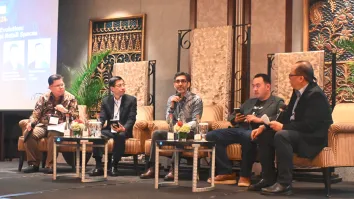

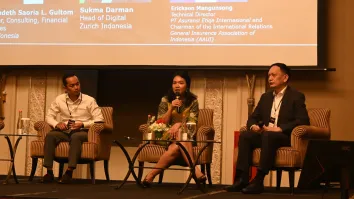

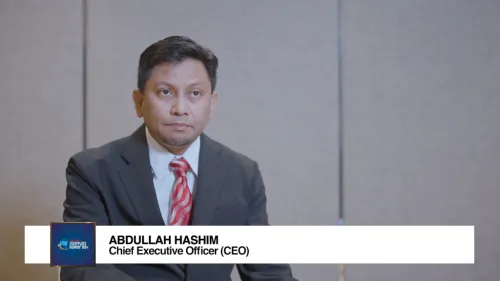

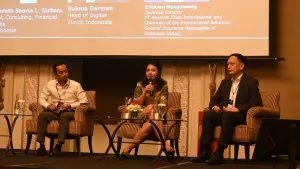
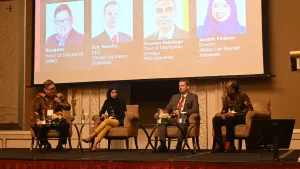
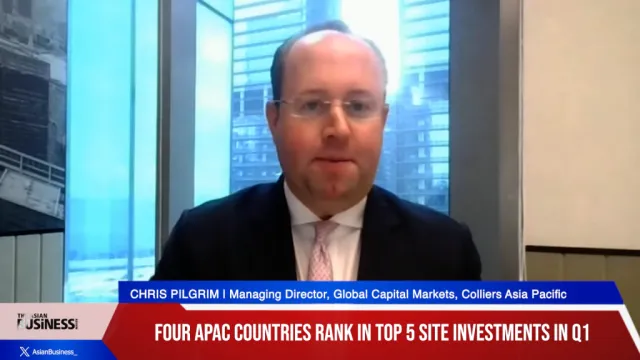
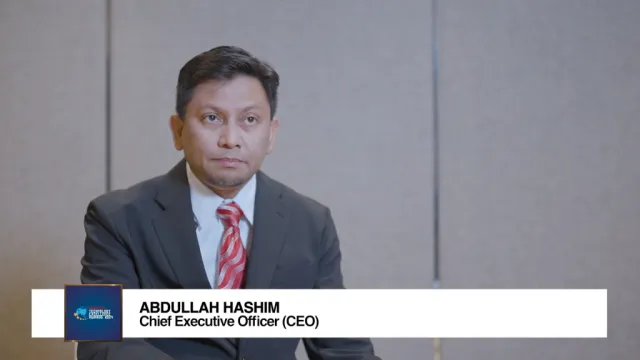
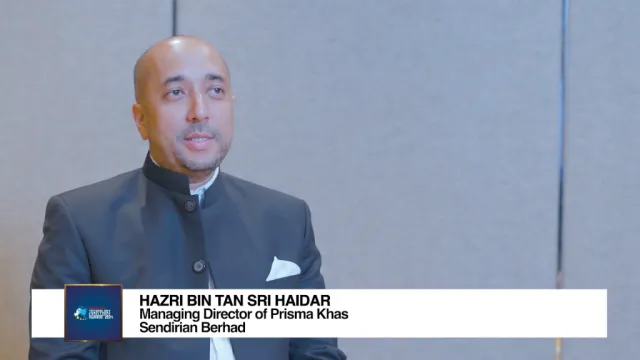
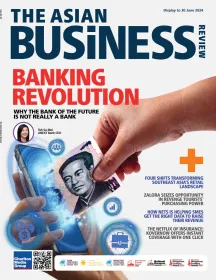
 Advertise
Advertise







